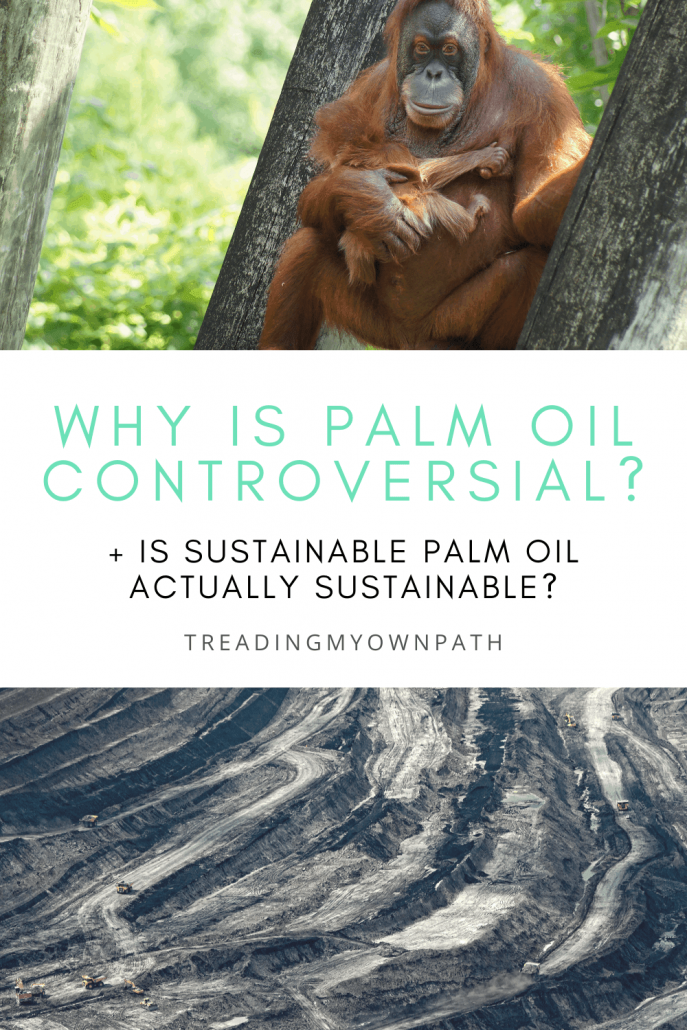The Palm Oil Paradox: Sustainability and Cosmetics
Related Articles: The Palm Oil Paradox: Sustainability and Cosmetics
Introduction
With great pleasure, we will explore the intriguing topic related to The Palm Oil Paradox: Sustainability and Cosmetics. Let’s weave interesting information and offer fresh perspectives to the readers.
Table of Content
The Palm Oil Paradox: Sustainability and Cosmetics

Palm oil, a versatile and abundant vegetable oil derived from the fruit of the oil palm tree, has become a ubiquitous ingredient in countless consumer products, including cosmetics. Its widespread use stems from its unique properties: it is naturally emollient, readily available, and relatively inexpensive. However, the industry’s reliance on palm oil has sparked intense debate, with concerns surrounding its environmental and social impacts. This article delves into the complex relationship between cosmetic companies and palm oil, exploring its benefits, challenges, and the ongoing efforts to ensure its sustainable sourcing.
The Allure of Palm Oil in Cosmetics
Palm oil’s appeal to the cosmetics industry is multifaceted. Its rich fatty acid profile, particularly its high palmitic acid content, makes it an exceptional moisturizer. It forms a protective barrier on the skin, locking in moisture and preventing water loss. This characteristic makes it a valuable ingredient in lotions, creams, soaps, and other skincare products.
Beyond its moisturizing properties, palm oil is a versatile emulsifier, enabling the blending of oil and water-based ingredients in cosmetic formulations. It also contributes to the texture and consistency of products, providing a smooth and silky feel. Additionally, its natural antioxidant properties help protect the skin from environmental damage caused by free radicals.
The Environmental and Social Landscape
The demand for palm oil, fueled by its use in various industries, has led to significant deforestation in Southeast Asia, particularly in Indonesia and Malaysia, where the majority of the world’s palm oil is produced. This deforestation has devastating consequences for biodiversity, displacing endangered species like orangutans, tigers, and elephants, and contributing to climate change by releasing large amounts of carbon dioxide into the atmosphere.
Furthermore, the expansion of palm oil plantations has often been linked to land grabbing, displacing indigenous communities and violating their land rights. Concerns also exist regarding labor practices within the palm oil industry, with reports of forced labor, low wages, and unsafe working conditions.
Navigating the Palm Oil Dilemma: Sustainable Sourcing and Transparency
Recognizing the ethical and environmental complexities surrounding palm oil, many cosmetic companies have taken steps to mitigate their impact. These initiatives include:
- Sustainable Palm Oil Certification: Companies are increasingly sourcing palm oil certified by organizations like the Roundtable on Sustainable Palm Oil (RSPO). The RSPO sets rigorous standards for sustainable palm oil production, encompassing environmental protection, social responsibility, and economic viability.
- Traceability and Transparency: Companies are striving for greater transparency in their supply chains, disclosing the origins of their palm oil and ensuring its traceability. This allows consumers to make informed choices based on their values.
- Alternative Oils and Ingredients: Some companies are exploring alternative oils and ingredients that can replace palm oil, minimizing their dependence on the controversial commodity. These alternatives include shea butter, coconut oil, and sunflower oil.
- Collaboration and Advocacy: Companies are collaborating with NGOs, governments, and other stakeholders to advocate for sustainable palm oil practices and promote responsible land use.
FAQs Regarding Palm Oil in Cosmetics
Q: Is palm oil safe for my skin?
A: Palm oil is generally considered safe for most people. However, individuals with sensitive skin may experience mild irritation or allergic reactions. It is crucial to check the ingredients list and patch test any new product before applying it to a large area of skin.
Q: Can I avoid palm oil in cosmetics?
A: Avoiding palm oil entirely can be challenging, as it is widely used in the industry. However, consumers can look for products that explicitly state they use sustainable palm oil or alternatives.
Q: What can I do to support sustainable palm oil practices?
A: Consumers can support sustainable palm oil practices by:
- Choosing products that are certified by the RSPO or other reputable organizations.
- Supporting brands that are transparent about their palm oil sourcing.
- Engaging with companies and advocating for sustainable practices.
Tips for Choosing Cosmetics with Sustainable Palm Oil
- Look for certifications: Seek products certified by the RSPO or other recognized sustainability organizations.
- Read the ingredients list: Look for "sustainable palm oil" or "RSPO certified" on the label.
- Research the brand: Investigate the company’s sourcing practices and commitment to sustainability.
- Consider alternatives: Explore products that use alternative oils and ingredients.
Conclusion: A Call for Responsible Consumption
The use of palm oil in cosmetics presents a complex dilemma. While its properties offer significant benefits, its production can have detrimental effects on the environment and local communities. By embracing sustainable sourcing practices, increasing transparency, and exploring alternative ingredients, the cosmetics industry can navigate this complex landscape. Consumers, in turn, play a crucial role by making informed choices, supporting responsible brands, and advocating for sustainable practices. Only through collective action can we ensure that the beauty industry thrives while minimizing its impact on our planet and its inhabitants.


![[DOC] Palm Oil Paradox: Sustainable Solutions to Save the Great Apes](https://i0.wp.com/www.wildling.rocks/wp-content/uploads/2016/11/Palm-oil-Paradox-118-Pages.jpg?resize=212%2C300)





Closure
Thus, we hope this article has provided valuable insights into The Palm Oil Paradox: Sustainability and Cosmetics. We thank you for taking the time to read this article. See you in our next article!